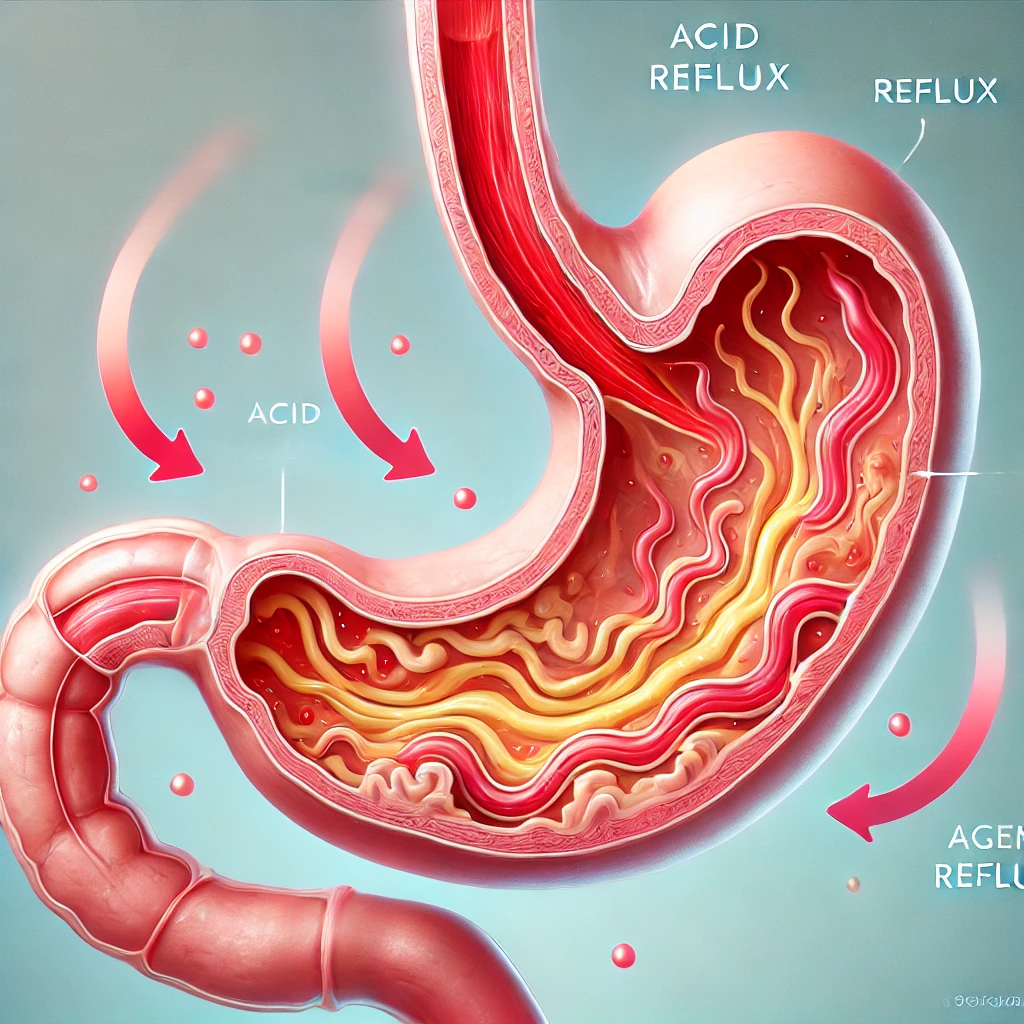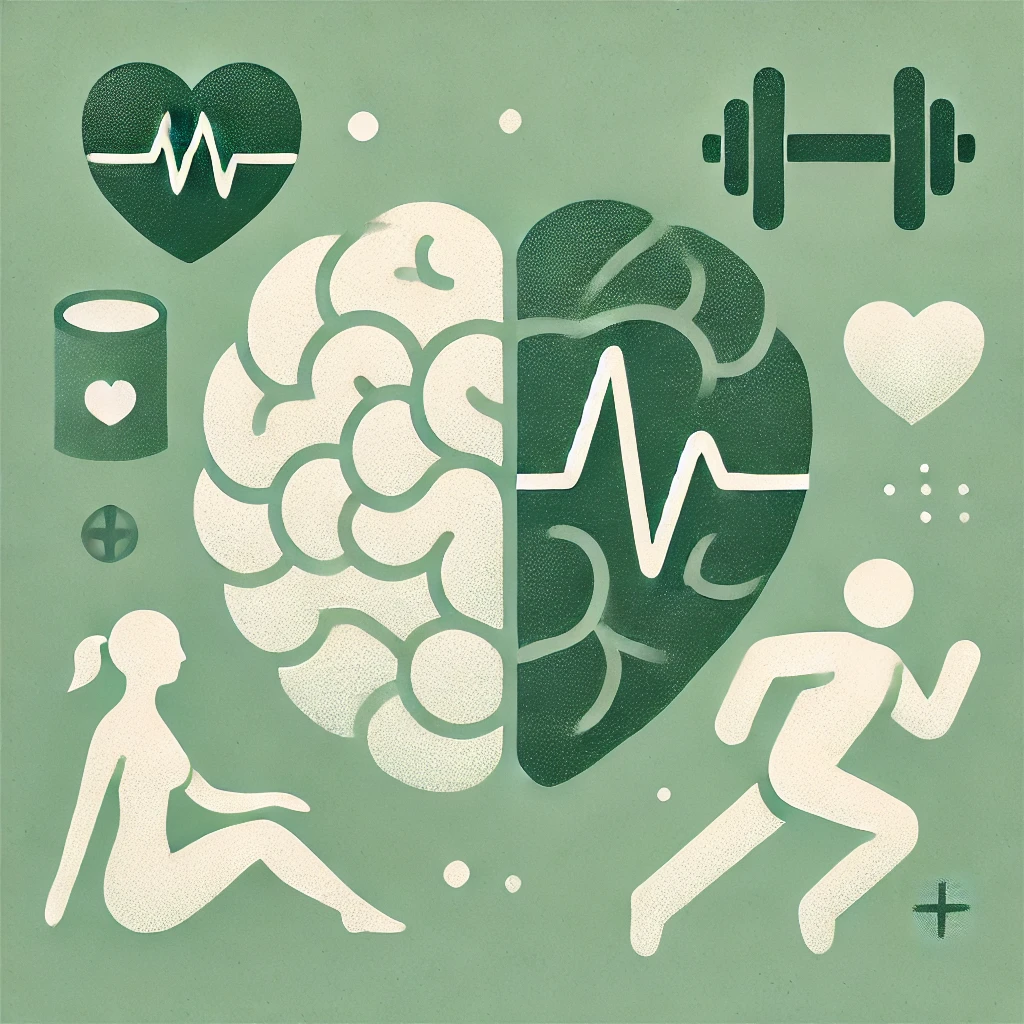Acid reflux, or gastroesophageal reflux disease (GERD), is when stomach acid oozes up into the esophagus.. While it can happen at any time, many people experience it more severely when they lie down or sleep. This can disrupt sleep quality and, if left untreated, lead to complications over time.
In this blog, we’ll explore the causes, symptoms, and treatment options for acid reflux when sleeping, along with practical tips for prevention.

What is Acid Reflux?
Acid reflux occurs when the lower esophageal sphincter-an anatomical valve between the stomach and the esophagus-fails to close properly or relaxes too freely. This allows stomach acid to enter the esophagus and burn the lining, an uncomfortable sensation known as heartburn.
When this occurs at night, the condition can worsen due to the lying-down position, which allows acid to flow more easily from the stomach into the esophagus.
Symptoms of Acid Reflux when sleeping
- Heartburn: A burning feeling which begins in the chest and often moves up into the throat.
- Regurgitation: A sour or bitter taste in the mouth caused by acid backing up.
- Coughing or wheezing: Irritation in the respiratory tract due to acid.
- Sore throat or hoarseness: Especially in the morning after waking.
- Chest discomfort: Sometimes mimicking symptoms of a heart attack.
- Disturbed sleep: Waking up frequently or having trouble falling back asleep due to discomfort.
Causes of Acid Reflux When Sleeping
1. Lying Down Too Soon After Eating
Eating a meal and then going to bed shortly afterward increases the risk of reflux. When lying down, gravity no longer helps keep food and acid in the stomach, making it easier for acid to flow back into the esophagus.
2. Overeating at Dinner
Consuming large meals, especially heavy or fatty foods, can put pressure on the stomach and cause acid to rise. Foods that trigger acid reflux include spicy dishes, fried foods, chocolate, and caffeinated beverages.
3. Obesity
Excess weight, particularly around the abdomen, increases pressure on the stomach, pushing acid upward. This risk can be higher when lying down, making night time reflux more frequent.
4. Snacking Before Bed
Late-night snacks or drinking acidic beverages like soda or citrus juice can trigger reflux. Alcohol and caffeine can also relax the LES, increasing the risk.
5. Sleep Position
Sleeping on your back or right side can make reflux worse. These positions allow acid to flow into the esophagus more easily compared to sleeping on the left side or with the head elevated.
6. Pregnancy
Pregnant women often experience acid reflux due to hormonal changes and increased abdominal pressure, which can worsen at night.
How to Treat and Manage Acid Reflux When Sleeping

1. Elevate the Head of Your Bed
Raising the head of the bed by 6-8 inches using blocks or a wedge pillow can help prevent acid from flowing into the esophagus. This uses gravity to keep acid in the stomach during sleep.
2. Sleep on Your Left Side
Studies show that sleeping on the left side can reduce acid reflux symptoms at night. This position keeps the stomach below the esophagus, making it harder for acid to escape.
3. Avoid Eating Before Bed
It’s best to stop eating 2-3 hours before bedtime. This gives your stomach time to digest food before you lie down, reducing the chance of acid reflux when sleeping.
4. Limit Trigger Foods and Beverages
Identify and avoid foods that worsen your reflux. Common triggers include:
- Spicy or fatty foods
- Caffeine (coffee, tea, soda)
- Chocolate
- Alcohol
- Citrus fruits and juices
5. Use Over-the-Counter Medications
Several medications can provide relief from acid reflux, including:
- Antacids: Neutralize stomach acid (e.g., Tums, Mylanta).
- H2-receptor blockers: Reduce acid production (e.g., famotidine).
- Proton pump inhibitors (PPIs): Block acid production more effectively (e.g., omeprazole, lansoprazole).
When to See a Doctor
If you experience acid reflux frequently at night or if your symptoms worsen, it’s essential to seek medical advice. Chronic acid reflux can lead to complications, such as:
- Esophagitis: Inflammation of the esophagus.
- Barrett’s esophagus: A precancerous condition caused by long-term acid exposure.
- Esophageal stricture: Narrowing of the esophagus caused by inflammation.
- Aspiration pneumonia: Caused by inhaling acid into the lungs.
Conclusion
Acid reflux when sleeping is unfortunate and can wreak serious consequences on your health, but once you follow few lifestyle alterations and medical treatment for the acid in place, it definitely knocks down. From elevating your bed, sleeping on your left side to avoiding late meals and maintaining a healthy weigh.
When simple over-the-counter solutions do not provide relief, be sure to seek help from your doctor for a complete evaluation. Take charge of your acid reflux early and get a better night’s sleep while preventing complications that keep you awake or unwell, the next morning.


1 thought on “Acid Reflux When Sleeping: Causes, Symptoms, and Treatment”